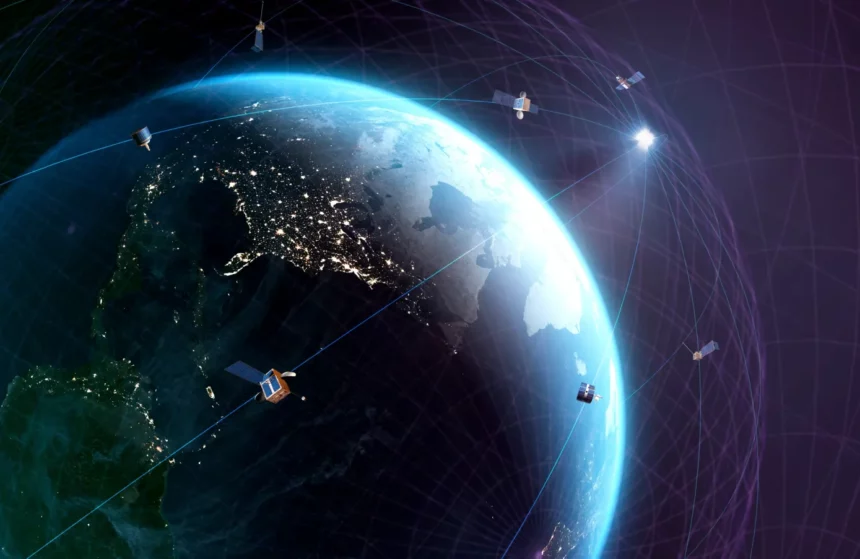Hubble Network has made history by establishing the first-ever Bluetooth connection directly to a satellite, marking a pivotal moment in the realm of connectivity. The Seattle-based startup, founded in 2021 by industry veterans Alex Haro, Ben Wild, and John Kim, has successfully validated critical technology that could revolutionize global device connectivity.
Since its inception, Hubble Network has been on a mission to overcome the limitations of traditional IoT devices, which often face challenges related to power consumption, operational costs, and limited global connectivity. With the successful establishment of a Bluetooth link with its satellites, the company has taken a significant leap forward in achieving this goal.
Through innovative software and patented phased array antennas, Hubble Network has overcome these limitations, enabling off-the-shelf Bluetooth chips to communicate over extended ranges with minimal power consumption. TechCrunch adds that The company’s phased array antenna acts as a magnifying glass, facilitating communication between Bluetooth-enabled devices and satellites.
“Imagine global coverage with 20 times less battery drain and 50 times lower operating costs. It’s not just an improvement; it’s a transformation,” the company adds in its blog post.

With plans to expand its satellite constellation, Hubble Network aims to provide continuous coverage for various use cases, from remote asset monitoring to soil temperature monitoring and even fall detection for the elderly. The successful establishment of a Bluetooth connection with satellites heralds enhanced efficiency and productivity, paving the way for global device connectivity on an unprecedented scale.
ALSO READ: Toyota Introduces the Mirai, a new hydrogen power FCEV
As Hubble Network continues to advance its satellite network, the potential for global device connectivity becomes increasingly within reach. The company is set to launch additional satellites in the coming months, paving the way for a robust production constellation that promises global connectivity for devices across industries.
“These aren’t just any satellites; they’ve successfully reached their orbits and managed to receive signals from a simple 3.5mm Bluetooth chip over an astonishing distance of 600km,” the company said in a blog post.
Reflecting on this remarkable achievement, co-founder Alex Haro expressed astonishment at the idea initially but emphasized the significant demand for such technology. “We’ve disproved thousands of skeptics,” Haro noted. “By showcasing that we can send signals directly from Bluetooth chips and receive them in space 600 km away, we’ve opened a new realm of possibilities.”
The implications of Hubble Network’s breakthrough are profound across various sectors. From agriculture to defense, the ability to connect millions of devices anywhere in the world promises to revolutionize how industries operate. With nearly five billion Bluetooth devices sold annually, the impact of this new connectivity could be monumental.
With its sights set on continuous innovation and expansion, Hubble Network is poised to reshape the landscape of connectivity. By enabling any off-the-shelf Bluetooth device with just a software update to connect to its satellite network without cellular reception, the company is paving the way for a revolution in the Internet of Things (IoT).









